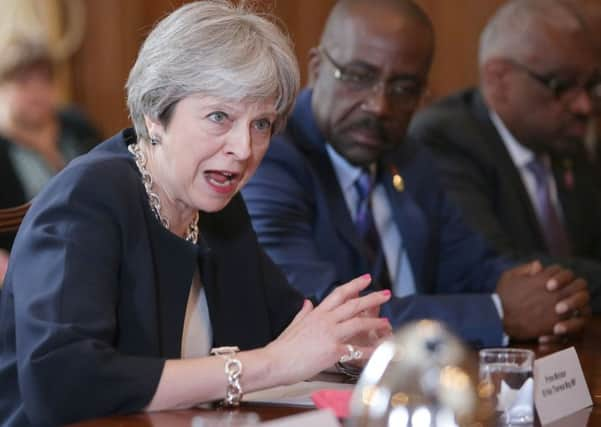Andrew Vine: Windrush saga lays bare our immigration muddle


As the row over the grossly unjust treatment of the Windrush generation rumbles on, it has exposed more than just a woefully incompetent and clumsy policy towards people who have every right to call Britain their home.
It has laid bare a much wider and damaging muddle over the whole issue of immigration that shows no sign of going away, and holds out the prospect of leaving millions of voters who backed Brexit both frustrated and angry.
Advertisement
Hide AdAdvertisement
Hide AdThe frantic back-pedalling by the Government over the mistreatment of Commonwealth citizens who have worked all their lives in Britain is unlikely to mitigate the roasting Home Secretary Amber Rudd has received over the issue ahead of her inquisition before the Home Affairs Select Committee tomorrow.
But the person who should really be on the receiving end is not Ms Rudd, who has been landed with an appalling mess not of her making to sweep up, but her boss and predecessor at the Home Office, Theresa May. She was responsible for the policies that have left some of the Windrush generation facing deportation or being refused treatment on the NHS, when after a lifetime of paying taxes – and often in retirement – they have been wrongly branded illegal immigrants.
It is not only this almighty blunder that has Mrs May’s fingerprints all over it. The fevered polarisation of views over what is a sensible and workable level of immigration for Britain owes much to her rhetoric as Home Secretary.
Let’s not forget that it was her no-nonsense image that won her the Conservative leadership – and the keys to 10 Downing Street – and that was based on tough talking at the Home Office.
Advertisement
Hide AdAdvertisement
Hide AdWhen former Prime Minister David Cameron pledged in 2010 to bring immigration down to below 100,000 people a year – always an arbitrary and unrealistic number – it was Mrs May who gleefully postured about being hard on those who had arrived here illegally.
That did much to prevent a reasoned debate about immigration, based on facts and not prejudice, that needed to take place.
Such a debate was necessary after the wave of effectively unchecked immigration that took place during Labour’s 13 years in power.
There needed to be a pause to rhetoric and a forensic examination of exactly how many immigrants had arrived, and the number of those who had done so illegally.
Advertisement
Hide AdAdvertisement
Hide AdAs part of that study, there should have been a proper assessment of how many migrant workers Britain needed. Even at that point, it was clear that the NHS simply could not function without its foreign-born staff, and a similarly realistic view should have been taken of the rest of the economy.
But that didn’t happen. Worse, it still hasn’t. The country continues to approach the key questions about immigration based on conflicting emotional viewpoints and not evidence.
Brexit has only made matters worse. The referendum campaign served to entrench already polarised views because immigration was at its heart, especially in northern working-class communities where there was a widespread belief that jobs were being taken by foreign workers.
Yet the issue has been quietly sidelined. As negotiations approach what must be the final stage, the people who voted for Brexit because of their honestly-held concerns over immigration have no real idea how many people will be allowed to come here once we leave the EU.
Advertisement
Hide AdAdvertisement
Hide AdWorryingly, the Government appears not to have any real idea either. Meanwhile, both the private and public sectors who have relied upon immigrant workers are left in limbo wondering what the future holds.
This raises the possibility that in the next few years, we’re going to see another mess over immigration policy that rivals the Windrush disgrace.
That was the consequence of bad policy, made on the hoof, with too little thought for what the long-term effects would be.
It’s difficult to find any sign of the post-Brexit policy on immigration being any better thought through, and a key result of that is likely to be a profound sense on the part of those who backed Brexit of having been cheated.
Advertisement
Hide AdAdvertisement
Hide AdThey thought they were voting for strict controls on future immigration. It turns out that what was on offer instead was a lot of hot air, and that’s not a recipe for a happy country determined to build the best possible future outside the EU.
If any good is to come out of the Windrush fiasco, it needs to be recognised as a cautionary tale of what happens when rhetoric and knee-jerk policy drive the way immigration is dealt with.
This is an opportunity for the Government to pause, reflect on what has happened, and change the tone of the debate, consulting properly on what level of immigration Britain needs and only then making policy.